
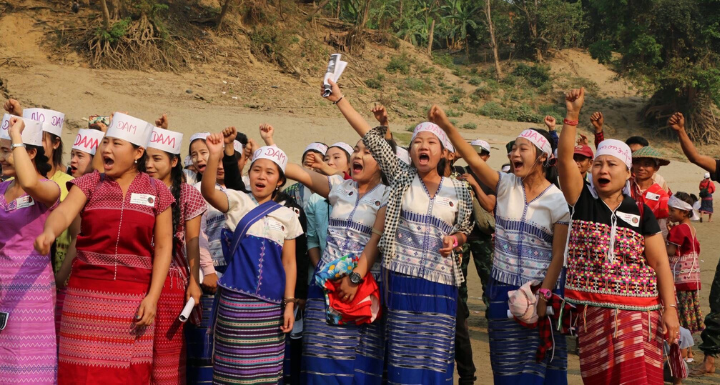
Calling All Women River Defenders in Africa and Asia…
who are protecting our water, communities, and ecosystems from environmental and climate threats. Join a powerful and diverse cohort of leaders who are ready to accelerate their impact and deepen their work to protect our world’s rivers. The world is calling you to expand your leadership!
Join A Powerful Group!
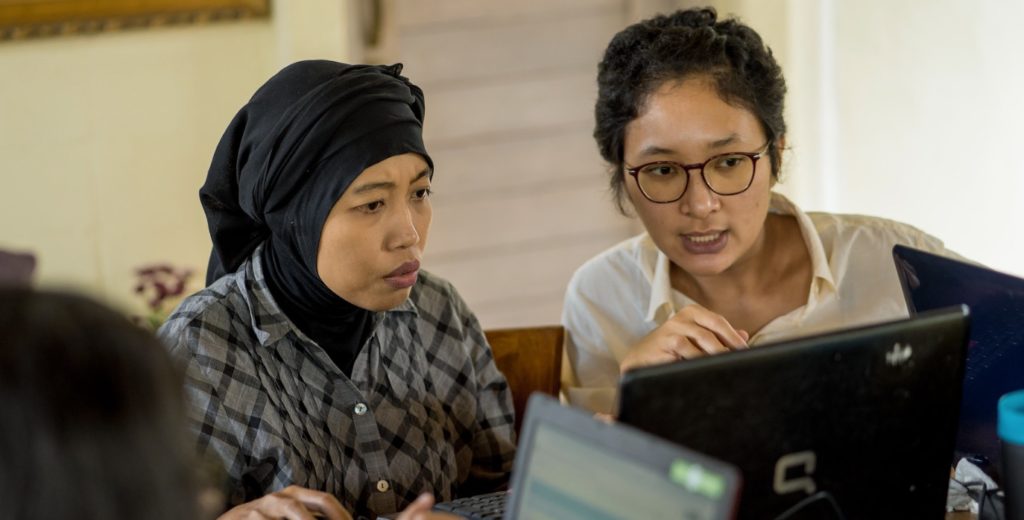
The Women & Rivers Accelerator was designed to strengthen the critical efforts of women river defenders who are protecting free-flowing rivers and the lands, forests and territories they sustain.
This program builds on the movement started at the 2019 Women and Rivers Congress, where 100 women from more than 30 countries came together to recognize the fundamental role women play in protecting and stewarding freshwater resources, as well as to spur collective action to challenge the deep-rooted, gender inequities that women face in safeguarding rivers and river ecosystems. To respond to the resounding request for more opportunities to build capacity, share best practices, and build a powerbase among women river protectors, International Rivers joined forces with Women’s Earth Alliance, a sister organization with 16 years of experience designing programs that catalyze the efforts of women grassroots environmental leaders around the world.
The Women and Rivers Accelerator is Designed to:
Scale the quantifiable impact of regional initiatives that protect rivers and the rights of communities that depend on them.
Bolster women’s environmental leadership and engagement by strengthening women’s access to networks, spheres of influence, information, and resources.
Grow public awareness and visibility for key campaigns and causes via our shared networks.
Share best practices for river and water protection across regions.
Strengthen campaigning for rivers in ways that are gender-responsive as leaders become trainers in International Rivers’ Transforming Power gender guide.
This Program Is For You If…

- You identify as a woman river defender from Africa and Asia, and you would like support to amplify your existing project or campaign.
- You are able to commit to a 4-month online program that includes regular zoom webinars and workshops. We estimate a 3-hour a week commitment to the program between the calls and activities.
- You are capable of participating in a program delivered in the English language (2022 is our inaugural pilot program with the aim to deliver the Grassroots Accelerator in various languages for future cohorts.)
The world is calling you to expand your leadership.
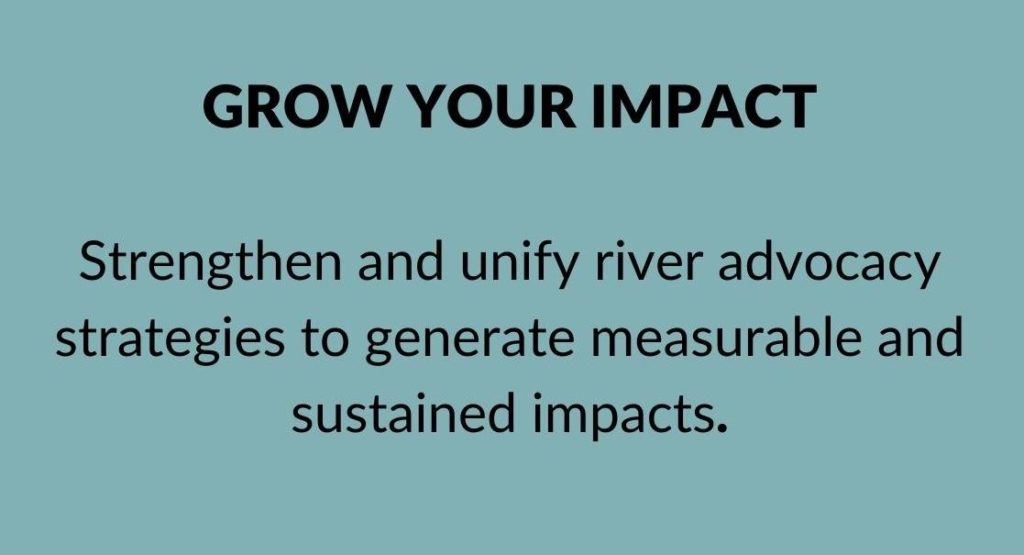
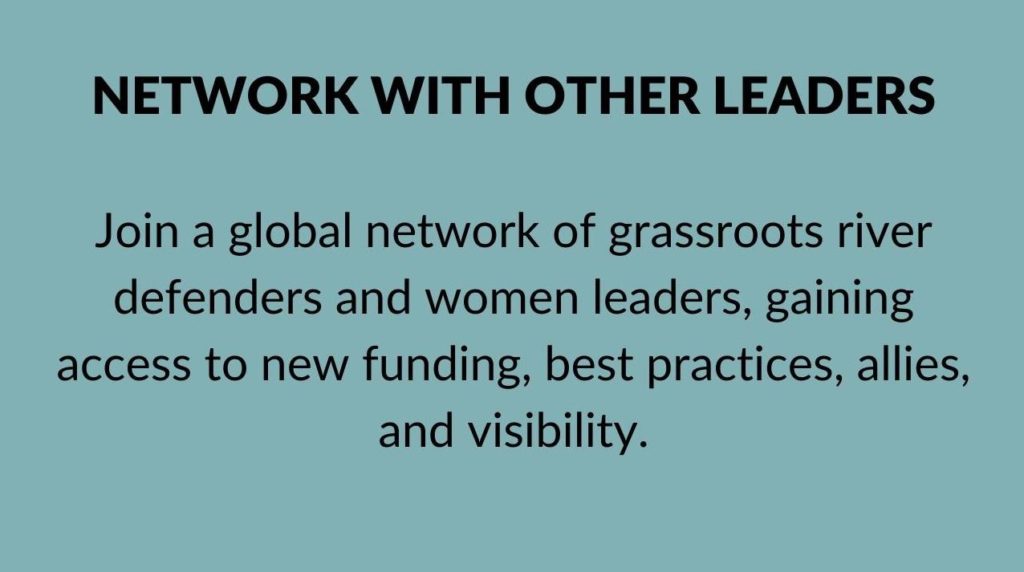
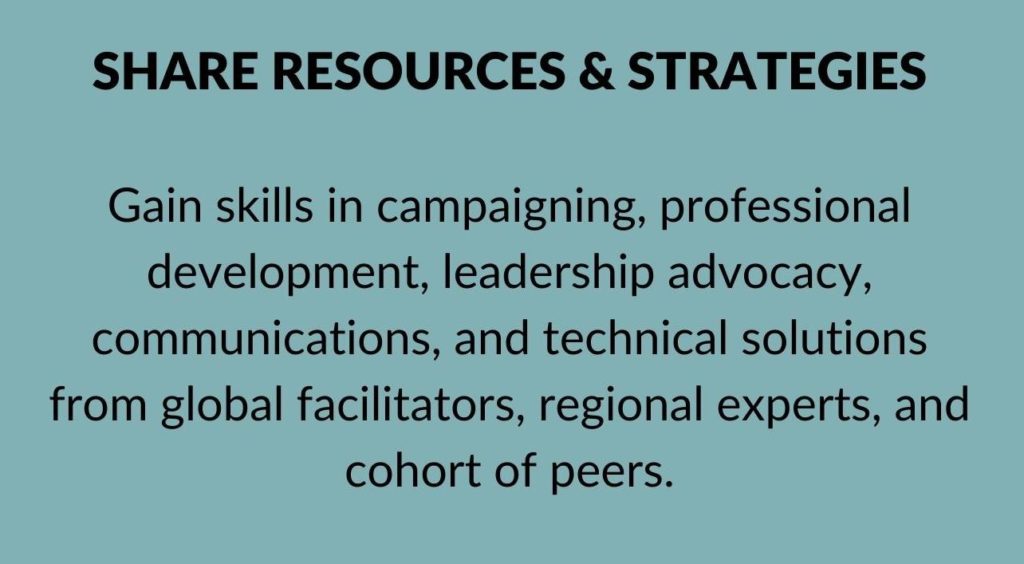
What You Will Gain From The Grassroots Accelerator…

2022 Women & Rivers Accelerator Timeline
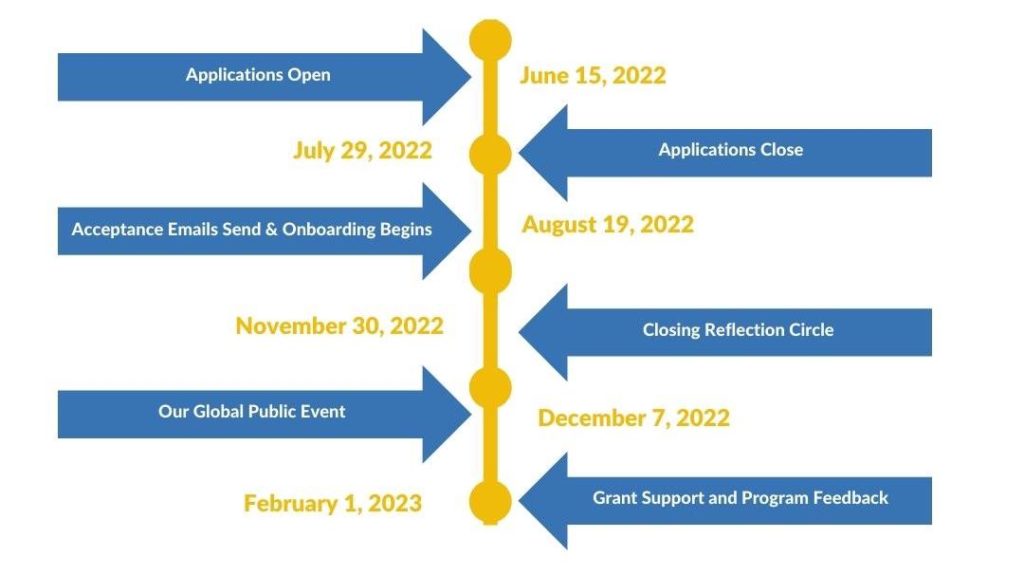
Ready to Join The Program?
Or maybe you have some questions. We’re here to help.
A Powerful Partnership
INTERNATIONAL RIVERS has been at the heart of the global struggle to protect rivers and the rights of communities that depend on them since 1985 in Latin America, Asia and Africa. IR works with an international network of dam-affected people, grassroots organizations, environmentalists, human rights advocates and others who are committed to stopping destructive river projects and promoting better options. Based in four continents, IR staff has expertise in big dams, energy and water policy, climate change, and international financial institutions. IR supports partner organizations and dam-affected people by providing advice, training and technical assistance, and advocating on their behalf with governments, banks, companies and international agencies.
WOMEN’S EARTH ALLIANCE Since 2006, WEA has worked at the intersection of women’s rights and the environment, creating impactful programming serving grassroots leaders around key environmental themes of climate change, water, agriculture, land protection, and energy. WEA designs capacity building “Accelerators” where women access technology, financing, mentorship, and a global alliance using WEA’s signature model. Through WEA programs, over 7,000 women have received training in WEA accelerators, and they have gone on to launch life-saving environmental solutions in 22 countries within Sub-Saharan Africa, South Asia, Latin America, and North America.
